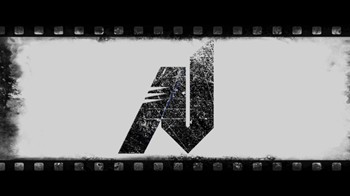Directed by Arthur Hiller, “Romantic Comedy” is a charming foray into the world of love, friendship, and the intricate dance of human relationships. The film stars Dudley Moore and Mary Steenburgen as Jason Carmichael and Phoebe Craddock, respectively—two writers whose professional partnership blossoms into a profound and endearing love affair. Set amidst the bustling literary scene of New York City, the film weaves together wit, humor, and emotional depth to explore the evolving bond between its lead characters over nine years.
Table of Contents
![Romantic Comedy (1983) [Blu-ray review] 6 Romantic Comedy (1983) [Blu-ray review] 5](https://andersonvision.com/wp-content/uploads/2024/02/romantic-comedy-blu-1.jpg)
Navigating Love and Laughter with Romantic Comedy
The narrative arc of “Romantic Comedy” is deftly crafted, tracing the journey of Jason and Phoebe from colleagues to soulmates. Their story begins on the eve of Jason’s wedding to Allison St. James, marking the start of a partnership that, despite initial reservations and Jason’s marital commitments, hints at a deeper, more meaningful connection. The film excels in portraying the gradual unfolding of their relationship, enriched by the trials of Jason’s failing marriage, Phoebe’s own romantic pursuits, and the professional challenges they face together.
What stands out is the film’s nuanced character development. Jason and Phoebe’s transition from work associates to friends, and ultimately lovers, is depicted with a blend of tenderness and humor. Their journey, punctuated by missed signals and heartfelt realizations, mirrors the quintessential elements of the romantic comedy genre, yet is handled with a grace that feels both refreshing and genuine.
![Romantic Comedy (1983) [Blu-ray review] 8 Romantic Comedy (1983) [Blu-ray review] 7](https://andersonvision.com/wp-content/uploads/2024/02/romantic-comedy-blu-2.jpg)
Visual and Auditory Elegance in 1983
While “Romantic Comedy” may not be heralded for its cinematographic innovation, David M. Walsh’s cinematography captures the essence of New York City with charm and vibrancy, offering a beautiful backdrop to the unfolding romance. The urban setting not only complements the storyline but also reflects the emotional landscapes of Jason and Phoebe, enhancing the narrative’s depth.
Marvin Hamlisch’s musical score is a critical component of the film’s emotional resonance. The soundtrack, with its reflective and spirited tones, perfectly encapsulates the film’s journey through moments of laughter and introspection. Hamlisch’s compositions enrich the cinematic experience, drawing the audience closer to the characters and their emotional voyage.
![Romantic Comedy (1983) [Blu-ray review] 10 Romantic Comedy (1983) [Blu-ray review] 9](https://andersonvision.com/wp-content/uploads/2024/02/romantic-comedy-blu-12.jpg)
Arthur Hiller’s Directorial Touch
Arthur Hiller’s direction imbues “Romantic Comedy” with a balance of humor and heart. Known for his adeptness in both comedy and drama, Hiller ensures that the film’s humorous elements complement rather than overshadow its emotional core. This delicate balance allows for a deeper exploration of the characters’ relationships, showcasing Hiller’s skillful direction and understanding of human connections.
The chemistry between Moore and Steenburgen is palpable, a testament to Hiller’s casting and directorial prowess. Their performances, marked by comedic flair and authenticity, bring the characters’ love story to life, making their relationship’s evolution both believable and engaging.
A Reflective Piece of Its Time
Released in 1983, “Romantic Comedy” captures the essence of an era that saw a flourish of romantic comedies. Although it may not stand as the most iconic of its time, it offers a poignant reflection on love, partnership, and the changing dynamics of romantic and professional relationships in the early ’80s. The film’s exploration of these themes resonated with audiences, echoing societal shifts toward a more nuanced understanding of love and career.
![Romantic Comedy (1983) [Blu-ray review] 12 Romantic Comedy (1983) [Blu-ray review] 11](https://andersonvision.com/wp-content/uploads/2024/02/romantic-comedy-blu-11.jpg)
A Timeless Romantic Delight
“Romantic Comedy” offers a delightful blend of humor and heart, encapsulating the essence of its genre with a witty script, captivating performances, and Arthur Hiller’s skilled direction. While it may not break new ground, the film stands as a lovely portrayal of the complexities of love and friendship, serving as a reminder of the genre’s capacity to charm, enlighten, and inspire empathy.
In the broader landscape of romantic comedies, “Romantic Comedy” remains a cherished narrative, celebrating the enduring appeal of stories that navigate the complexities of the human heart. Its legacy, though modest, underscores the genre’s potential to entertain and touch audiences, making it a cherished addition to the romantic cinema repertoire.
![Romantic Comedy (1983) [Blu-ray review] 14 Romantic Comedy (1983) [Blu-ray review] 13](https://andersonvision.com/wp-content/uploads/2024/02/romantic-comedy-blu-9.jpg)
Romantic Comedy comes to Blu-ray look good
Romantic Comedy is a release that looks to me like it was originally supposed to come out of Olive Films or Twilight Time. Yes, the 1080p transfer is that good. So, how did a Blu-ray of a forgotten 1980s movie wind up in my pile? Well, apparently this Blu-ray is an MGM MOD. I guess Sandpiper Pictures stopped making these a few weeks ago. If anyone from Sandpiper wants to drop me a line, you should know how to do it.
The A/V Quality is super strong with a stunning 1080p transfer and robust DTS-HD 2.0 master audio track. For some reason, I thought it was a lossy Dolby mix when the movie started, but my received kept trying to decode it as a DTS-HD 2.0 and that’s cool.

![Romantic Comedy (1983) [Blu-ray review] 4 Romantic Comedy (1983) [Blu-ray review] 3](https://andersonvision.com/wp-content/uploads/2024/02/romantic-comedy-blu-ray-title-2.jpg)

[…] Romantic Comedy (1983) [Blu-ray review] […]